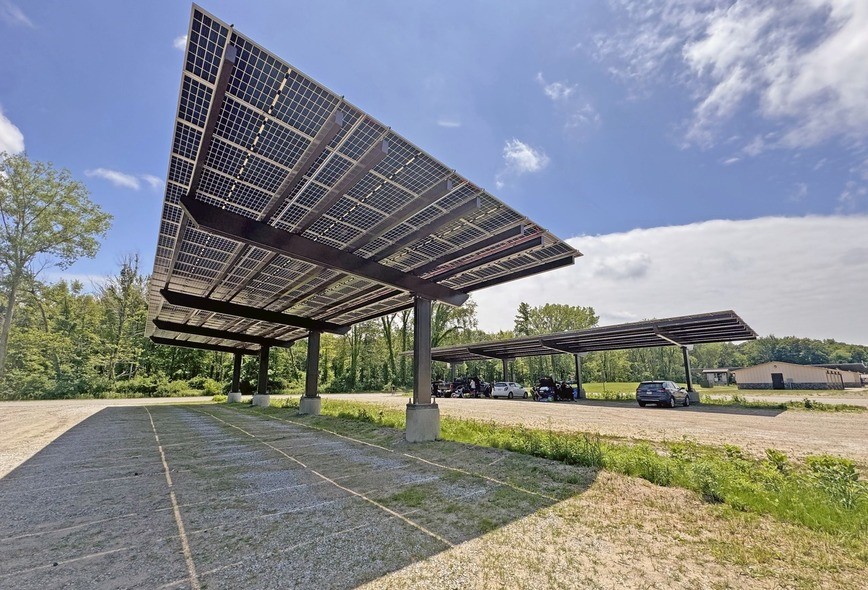Uber, Lyft, DoorDash Prevail in California Gig-Employee Ruling – Cyber Tech
Uber Applied sciences Inc. and Lyft Inc. can hold classifying California drivers as unbiased contractors, after the state’s prime court docket stated a company-backed legislation handed by voters doesn’t wrongly curtail the legislature’s energy over employee protections.
The unanimous ruling upholding California’s Proposition 22 was launched Thursday.
The favorable ruling for the gig economic system firms removes what traders considered a serious regulatory overhang. Had the decide dominated to invalidate Prop 22, the businesses would have confronted the specter of hundreds of thousands of {dollars} in extra price to pay drivers in the event that they have been to be reclassified as staff, upending their enterprise fashions and probably elevating consumer prices in one in all their largest US markets.
Associated: Uber Loses Problem to California Gig Work Regulation in Appeals Courtroom
Shares of Uber, Lyft, DoorDash and Instacart all spiked on the information. Lyft noticed the largest achieve, with a 7.4% soar in share value.
Justice Goodwin H. Liu in Could oral arguments stated the legislation doesn’t essentially preclude employees from ever receiving employees’ compensation, a system to assist employees injured on the job that the state legislature has constitutional energy to supervise. The case was introduced particularly over the constitutionality of this provision, however Liu stated the legislation doesn’t block legislators from deciding that unbiased contractors are eligible for employees’ compensation.
California’s structure doesn’t bar voters from passing legislative initiatives on issues impacting employees’ compensation, Liu wrote Thursday.
Associated: California Courtroom to Weigh Destiny of Regulation Treating App-Based mostly Drivers as Contractors
“It will unduly prohibit the initiative energy to provide the Legislature what would primarily be a first-mover benefit, precluding the voters from undoing any motion the Legislature takes pursuant to” the employees’ compensation system, Liu wrote.
The ruling is a win for the trade as gig firms like Uber, Lyft, and DoorDash Inc. poured greater than $200 million into their 2020 marketing campaign to protect the core of their enterprise fashions and hold drivers categorized as unbiased contractors.
In the meantime, drivers and unions argued that the legislation improperly shifts the price of doing enterprise onto gig employees and denies them different protections, corresponding to minimal wage, sick go away, and additional time pay.
Passenger app drivers make a median wage of about $5.97 per hour with out suggestions in California when factoring all work time, gasoline, and automobile weathering, in keeping with a Could College of California at Berkeley research.
It’s not the primary time this time period the California Supreme Courtroom has weighed in on the extent of California’s uniquely expansive proper for voters to move new legal guidelines and amend current ones.
The state prime court docket in June blocked a poll measure that may have requested voters to make new state and native taxes tougher to enact. The measure would have revised the state structure, which is past the ability of voters, the opinion stated.
The court docket ruling affirms “the desire of the almost 10 million Californians who voted to ship historic advantages and protections to drivers, whereas defending their independence,” Uber stated in an announcement.
“Whether or not drivers or couriers select to earn only a few hours per week or extra, their freedom to work when and the way they need is now firmly etched into California legislation, placing an finish to misguided makes an attempt to pressure them into an employment mannequin that they overwhelmingly don’t need.”
Liz Jarvis-Shean, DoorDash’s vp of communications and coverage stated in an announcement, “This resolution is a big victory for California Dashers and voters – Prop 22 is right here to remain.”
Olson Remcho LLP and Altshuler Berzon LLP symbolize Castellanos. O’Melveny & Myers LLP and Nielsen Merksamer Parrinello Gross & Leoni LLP symbolize Defend App-Based mostly Drivers and Providers.
The case is Castellanos v. California, Cal., No. S279622, 7/25/24.
High picture: A DoorDash employee in San Francisco. Photographer: David Paul Morris/Bloomberg.
Copyright 2024 Bloomberg.
Subjects
California
Concerned with Ridesharing?
Get computerized alerts for this matter.



